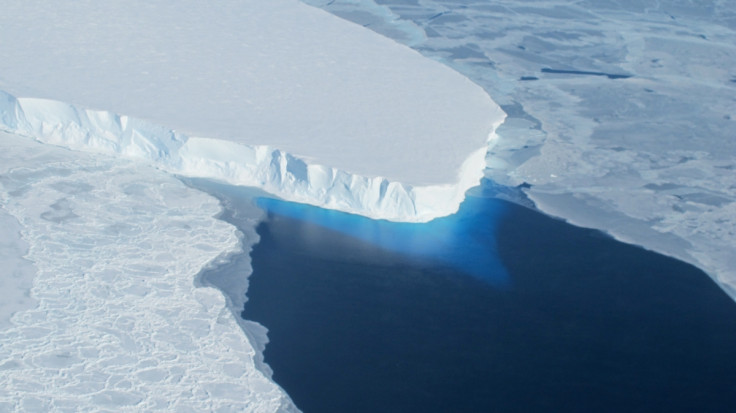West Antarctic: Thwaites Glacier 'Melting from Below Through Geothermal Heat'

A major glacier in the West Antarctic is melting from geothermal heat below, as well as the warming ocean, scientists have discovered.
The Thwaites Glacier is a large outlet of the West Antarctic Ice Sheet and has been subject to considerable attention in recent months, with reports indicating it is set to collapse. Studies by Nasa and the University of Washington suggest the collapse has already started and that it is now "unstoppable".
Published in the Proceedings of the National Academy of Sciences, researchers from the Institute for Geophysics at The University of Texas at Austin found the Thwaites Glacier is being eroded by the ocean, while also melting from geothermal heat.
Radar techniques used to map hot water flows beneath the ice sheet show it is much hotter than previously assumed.
They say their findings changes the understanding of conditions beneath the Ice Sheet, and that it will help with modelling efforts to work out when it the sheet will collapse.
It had been assumed distribution of heat under the glacier was uniform. However, the latest findings showed it is variable, with heat distributed by the movement of magma and associated volcanic activity.
Study co-author Don Blankenship said: "It's the most complex thermal environment you might imagine. And then you plop the most critical dynamically unstable ice sheet on planet Earth in the middle of this thing, and then you try to model it. It's virtually impossible."
The Thwaites Glacier is considered crucial to the understanding of what will happen to the West Antarctic Ice Sheet in the future. It is currently retreating in response to the warming ocean and is unstable because its interior lies deep below sea level, making it a gateway for the area's potential sea level contribution.
At present it is thought the collapse of the glacier would increase global sea levels by up to two metres.
"The combination of variable subglacial geothermal heat flow and the interacting subglacial water system could threaten the stability of Thwaites Glacier in ways that we never before imagined," Schroeder said.
© Copyright IBTimes 2024. All rights reserved.






